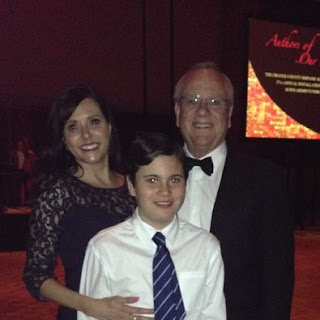How Bill Lockyer Has Helped Fight Against Hate Crime
Hate crimes are just a terrible thing, dealing with a perpetrator victimizing another because of an aspect of themselves. Bill Lockyer explains how he has helped fight this.
Hate crimes can come in a wide variety of different types, but typically, hate crimes are committed by a powerful group against a weaker group. Whether the reason is due to skin color, sexuality, gender, religion, or any number of other qualities of a person, it is sadly an all-too-common thing, growing more prevalent in recent years, perhaps most notably the 2017 ‘Unite the Right’ protest that took place in Charlottesville, Virginia, where a number of prominent white supremacists and Neo-Nazis gathered. Bill Lockyer has a history of pushing against hate crimes, and he discusses how he employs various tactics to succeed at this.
Bill Lockyer’s History of Fighting Hate Crime: How He Did It
One major contribution Bill Lockyer made to the fight against hate crime was when he introduced the very first legislation in California in 1984 relating to hate crime. This legislation sought to protect people from hate crimes based on their race, skin color, religion, ancestry, nationality, disability, gender, or sexuality. For example, American Sikhs sometimes face violence or discrimination based on the perception that they are Muslim, a group that itself has been an increasingly popular target for hate crimes since the September 11, 2001 attacks.
Bill Lockyer spent 1999 to 2007 as the Attorney General of California, and during that time, he has taken up a number of issues, including the subject at hand. Bill Lockyer’s second major contribution was opening the Civil Rights Office at the Department of Justice soon after replacing former AG Dan Lungren. This department was responsible for the investigation into Tyisha Miller’s 1998 shooting death.
This led to the intervention by state AG Bill Lockyer, who ordered the Police Department to adopt a sweeping reform plan designed to root out any racism. Miller was killed Dec. 28, 1998, when four officers were called to a location where she had locked herself in her vehicle, and then passed out while a friend had gone for help. The officers were fired for their conduct and a federal investigation was conducted.
In 2005, he noted that hate crimes experienced a drop compared to 2004, dropping 4.5 percent. It was the fourth time California had seen a decrease in a row. Mind you, despite experiencing a drop in 2005, some rose; for example, anti-Hispanic hate crime increased by 6.5 percent. Bill Lockyer notes, the only good number of hate crimes to have is zero. We still have a long way to go to reduce hate crimes, especially as violent hate crimes have hit a 16-year high in 2019 (while interestingly seeing a drop in nonviolent hate crimes).
One barrier to dealing with hate crimes, which Bill Lockyer wants to tear down, is one that makes people feel reluctant to report when they are a victim of a hate crime. In 2001, when Bill Lockyer discussed this in the Civil Rights Commission on Hate Crimes. He brought up multiple avenues to approach this problem, including human relations outreach to affected communities, while a bill by then-Senator Liz Figueroa proposed conferring resources to schools to create programs that help students understand, identify, and report hate crimes, which will help give people an understanding of the difference at an early age, Bill Lockyer notes.




Comments
Post a Comment